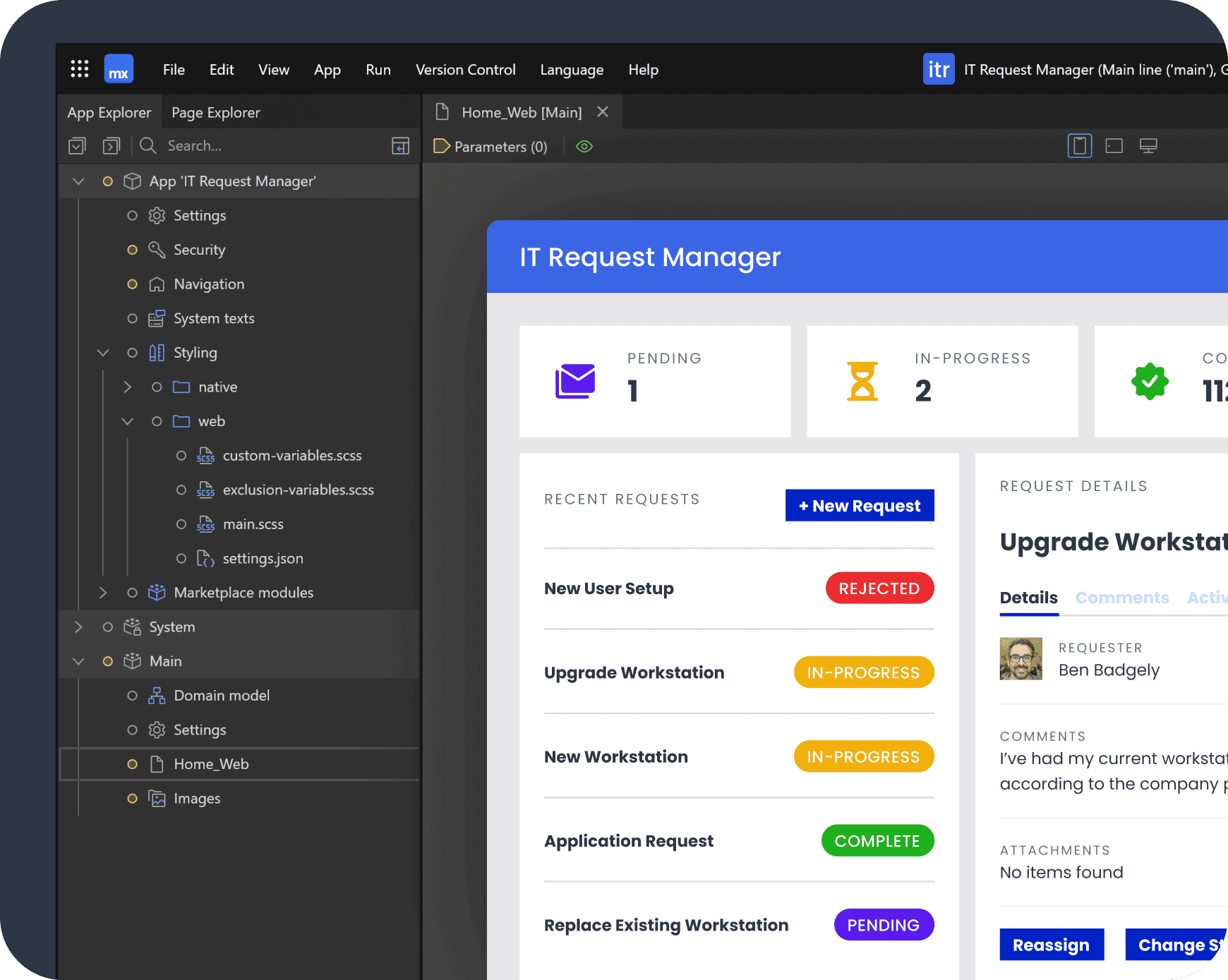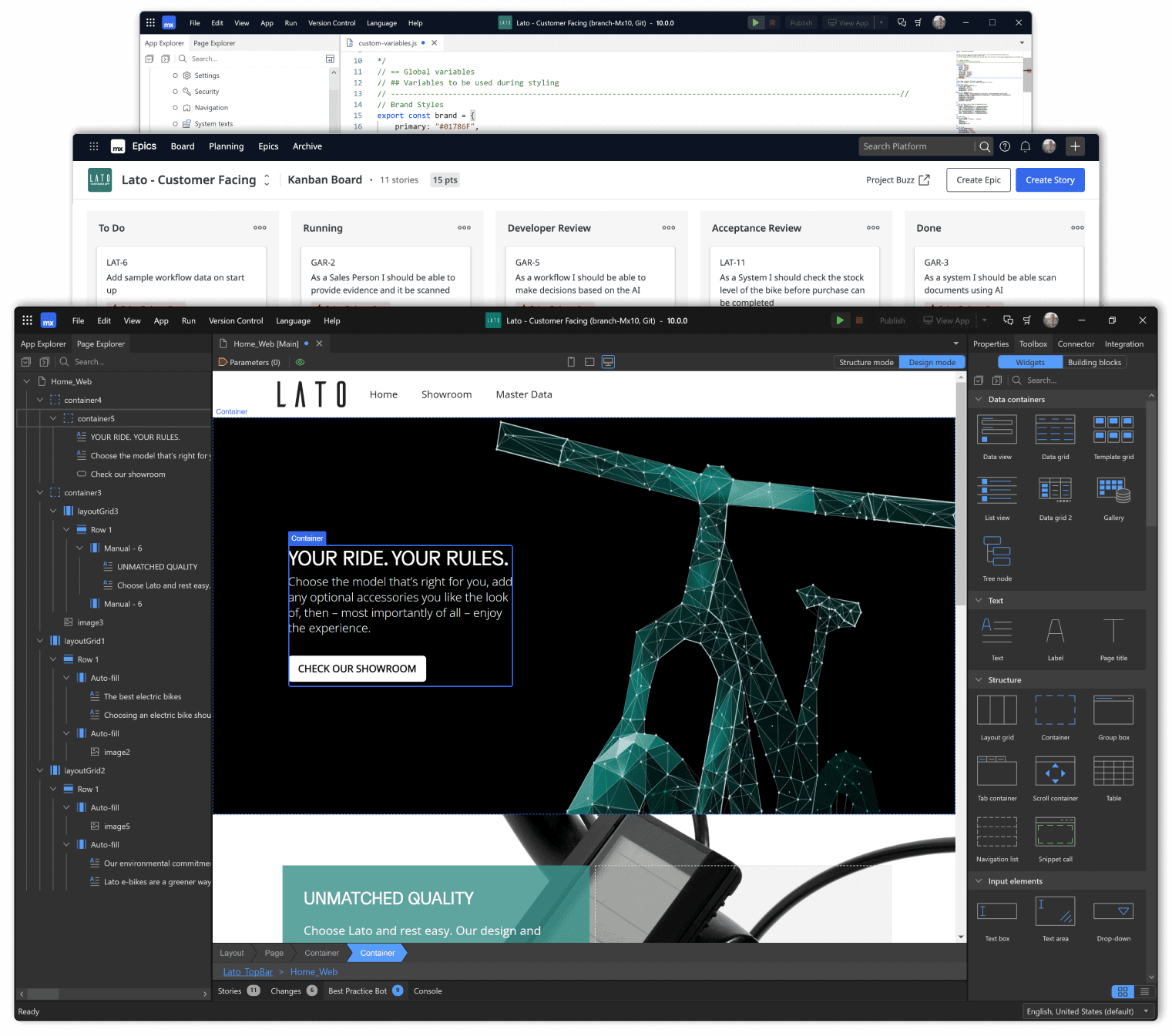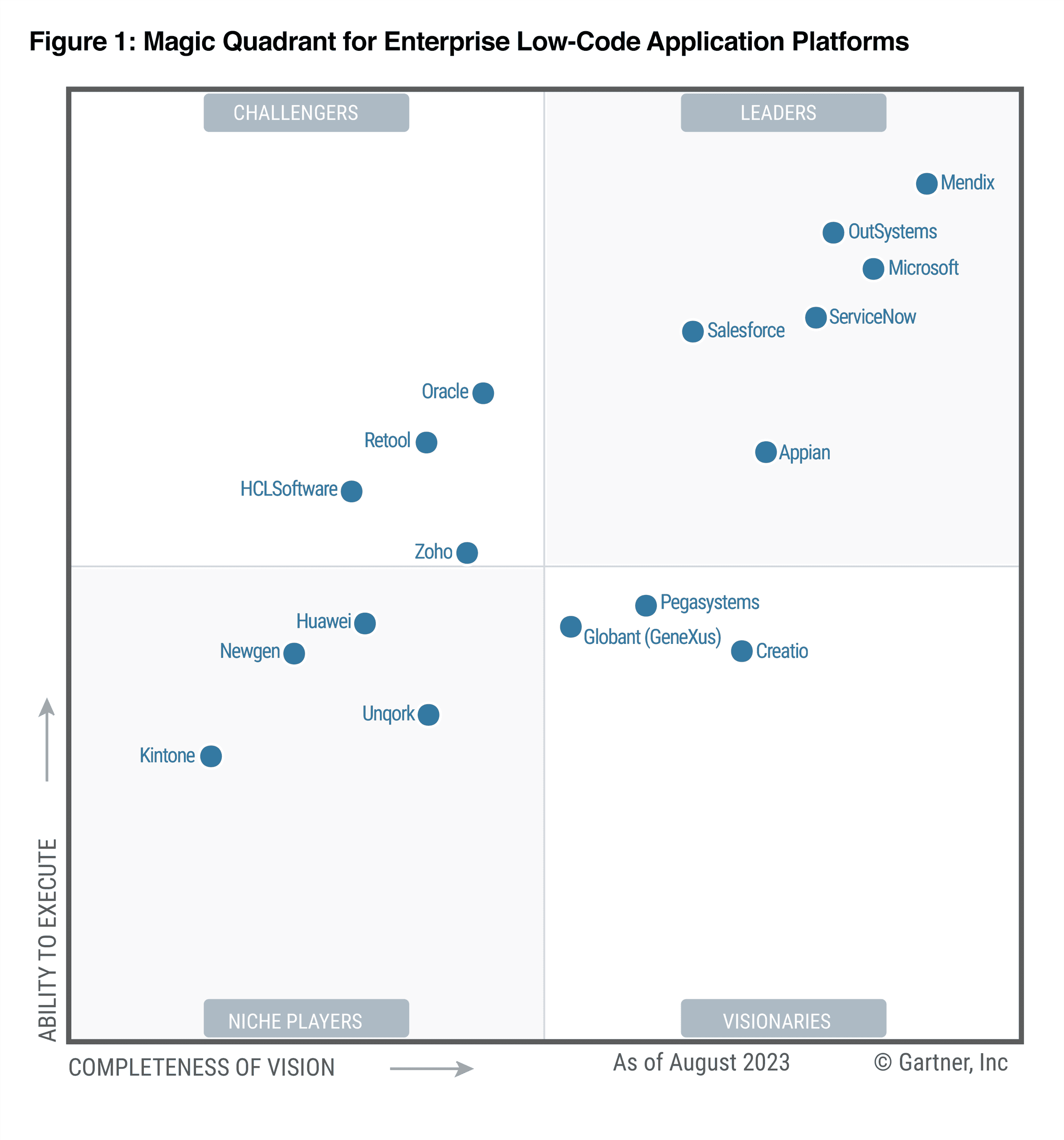
Generate Domain Models with Maia - Mendix 10.13
Mendix 10.13 Release
Mendix is the only low-code platform designed for today‘s complex software development challenges
Building custom business applications is a must for enterprises looking to:
But the demand for these apps expands beyond IT’s ability to deliver. Resources are stretched, and outdated delivery methods hinder growth.
The why of increasing application velocity is obvious, but the how is less so. It seems like there are too many barriers on the path toward better software development.

Low-code is 90% faster than traditional development, making it easier for enterprises to build game-changing applications.
Low-code development incorporates automation and abstraction to streamline development processes for users of all skill levels. It also gives professional developers more opportunities to innovate enterprise-wide solutions.
A low-code application platform (LCAP) helps enterprises:
Mendix helps IT overcome resource and systems challenges to accelerate every step of the application development lifecycle, with features and capabilities including:
Mendix 10.13 Release
What does complexity mean to you and for your enterprise? If we sat down with 100 IT leaders and asked, we’d probably get 100 different answers. So, let’s define “complexity” together. And who better than actual Mendix users?
Innovate with a leader in low-code
A leader in the 2023 Gartner® Magic Quadrant™ for Enterprise Low-Code Application
Platforms
Leader in the Forrester Wave™: Low-Code Development Platforms For Professional Developers, Q2 2023
Mendix 10.13 Release
What does complexity mean to you and for your enterprise? If we sat down with 100 IT leaders and asked, we’d probably get 100 different answers. So, let’s define “complexity” together. And who better than actual Mendix users?
Application development refers to the process of creating web or mobile software solutions for a specific need. With enterprise application development the process involves creating apps for business purposes, such as automating workflows or modernizing legacy systems. Ideating, planning, designing, building, testing, integrating, and deploying are all part of the application development lifecycle.
An application development platform provides the tools and technology necessary to design, develop, implement, and maintain web and mobile applications. These platforms provide development environments that make it possible to build custom business applications in house.
Low-code application development is an approach that requires little or no coding expertise. Instead of complex programming languages, low-code platforms feature intuitive development toolkits and visual interfaces that people of all coding skill levels use to develop custom applications.
Enterprise application development is often seen as a challenge because many businesses have a lack of resources, inefficient or broken lifecycle management processes, problems with legacy systems, departmental silos, and/or communication issues. Enterprises also have evolving business needs, a high volume of data, limited resources, and complex integration requirements that can prolong the development process and delay deployment.
Low-code application development platforms alleviate these challenges. Features of low-code platforms include visual modeling, project management tools, pre-built templates and widgets, and other tools that enable rapid development and deployment. Low-code takes a visual, user-friendly approach that people of all coding skill levels can understand.




